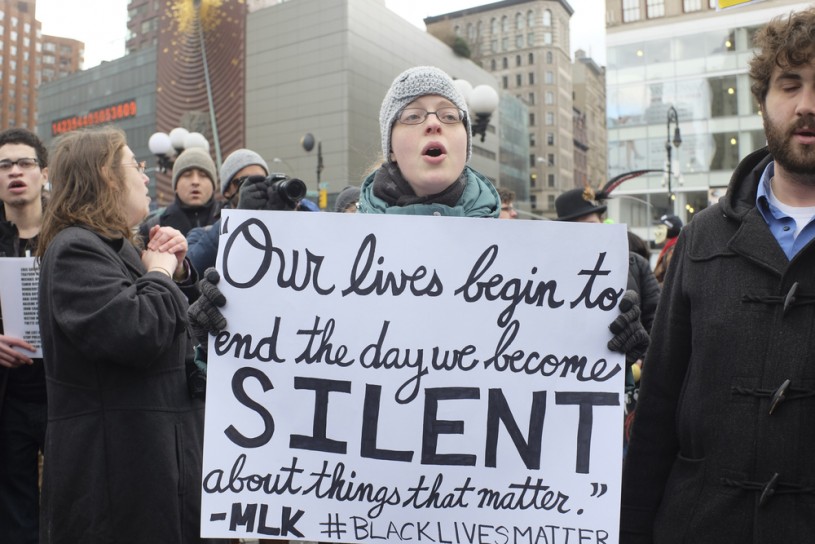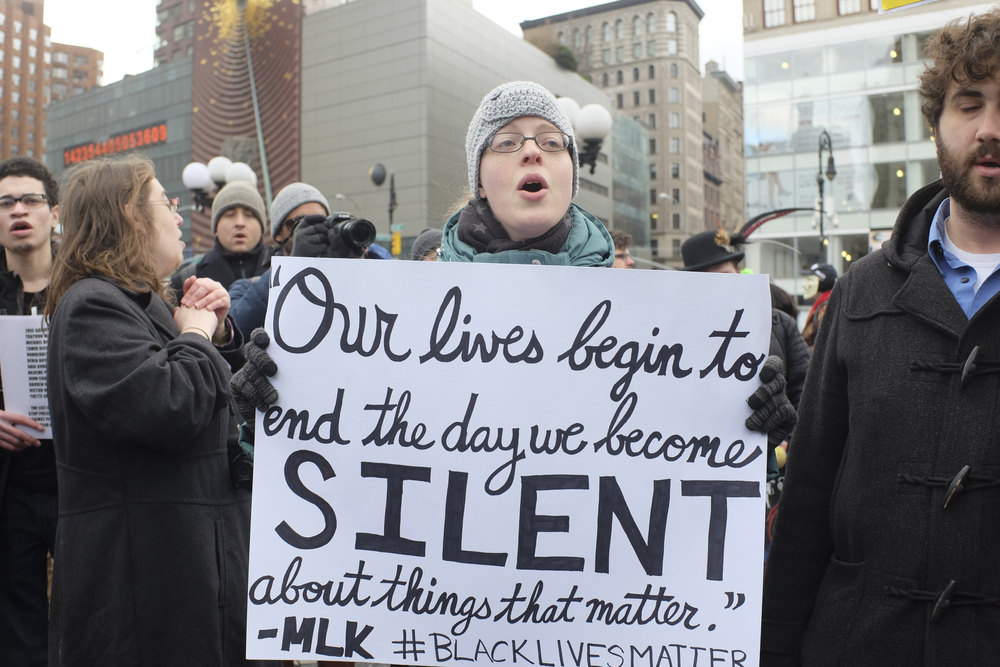
(Image: Shutterstock / a katz)
As a progressive person of faith, I’ve had an interesting week. Pope Francis released an encyclical that called on the global human community to practice compassion, for each other and for our common home. In it, the Pope asked that our actions should be carried out in light of our “deepest convictions about love, justice, and peace.” It was inspiring and hopeful.
But the encyclical was released merely hours after a young, white man entered a historically Black church in Charleston, South Carolina and opened fire, killing nine people inside. We now know the shooter had long talked of sparking a race war and wanting segregation reinstated.
A day after this horrific event, I attended my weekly Bible study group, where we talked about motivations of the human heart with little mention of what happened in Charleston. We closed the meeting with a prayer, during which we said, “God, we will never understand why these things happen. And we may never know what motivated the person who carried out his terrible act.”
But we do understand. We understand this person committed an act of terror because of the narrative that has permeated our country since its founding – those who are different from us are less human than us, and we can treat them accordingly.
And we do know. We know the shooter was motivated by a conviction that Black people in America don’t deserve the same things as White people in America.
To claim – as people of faith – that we don’t understand or we don’t know is to abdicate our call to be a prophetic voice to the world. We would be failing to act out of love, justice, and peace, as the Pope calls us to.
On Sunday morning, I’m going to sit in a church, like I do most Sundays. Many Christians around the country will do the same. Pastors will lead us in prayer for peace and for comfort. But many of them will neglect to mention the hate-filled narrative against people of color or low income people that is embedded in our structures and systems in this country.
Many pastors will abdicate their call to speak the truth because racism is too uncomfortable and too difficult to talk about from the pulpit. Some won’t want to risk offending people or losing parishioners. It is certainly not “seeker-friendly.”
As people of faith, we are complicit to hate and to racism when we don’t act to dismantle the systems and structures that perpetuate it. We are complicit when we don’t speak hard truths about what’s wrong with the world because it’s risky and uncomfortable.
The places of worship where people of faith go to take refuge from the world are no longer safe. And we, as people of faith, can no longer turn a blind eye. We can no longer leave race conversations out of the pulpit – and our Bible studies – because violent, destructive racism literally came into a sacred space this week, and brought hell on earth.
We have to take courage and speak – like the prophets of old – against the injustices of this world. We have to take up the task of demanding love, justice, and peace even when – especially when – it is too risky to do so. It is, simply, our calling and our divine purpose.
There are great ideas on how to move forward at BlackLivesMatter or FergusonAction. For resources on how to have conversations about race in faith communities, visit gcorr.org/resources.
